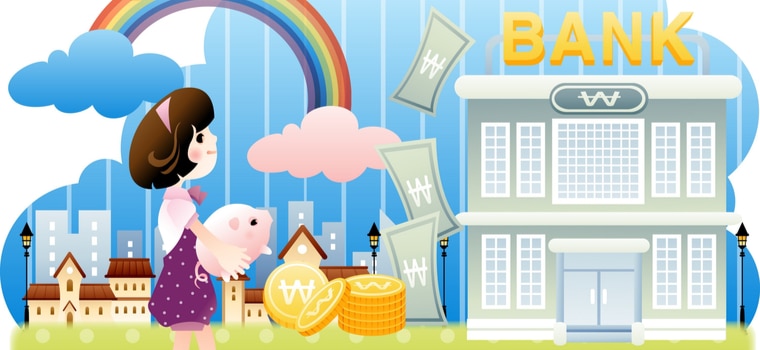Preparing a child for financial independence is one of the many responsibilities parents can struggle with, particularly deciding what age is best for opening a checking account.
When your child is at the right age to understand and follow banking concepts, the foundation for good financial skills can be taught. Here are some of the basic guidelines for opening a checking account for your child — and establishing solid money management habits for life.
When To Begin
Opening a bank account for your child is a personal decision that depends on several factors, including the right age and responsibility level. For some, the best time might be when the child gets a driver’s license or lands a part-time job.
Make sure your child is old enough to understand basic banking concepts and financial definitions. You can start the learning process by helping your kids define answers to questions like:
- What am I saving for?
- What is my income?
- How can I earn more money?
- Is that a want or a need?
- What if an emergency comes up and I need money now?
- Where and why should I give my money away?
- What are gifts versus donations?
Educate your child on trade-off decisions by explaining budgeting and tracking spending. Set attainable goals and provide incentives that pay off when lessons are learned. Some questions to answer:
- What are my spending categories?
- What do I want my portfolio to look like at the end of the year?
- How do I reach my goals?
Finding the Right Bank
Each bank is different when it comes to the minimum age a customer must be to open a new account. Some require new account holders to be 18 with a verifiable source of income, while others welcome users as young as 13 or 14 with a deposit, a minimum balance and regular activity. Dormant accounts may get charged fees, and often banks require the guardian to be a joint owner to offset the risk of an overdraft account.
And don’t forget about local banks. They often offer interesting incentives to earn your business and keep it close to home.
Once you’ve identified the right bank for your account, decide how your child will access the account. The bulk of today’s transactions are electronic, conducted online or through an app. Kids must learn to navigate this environment with caution and purpose. As such, finding the platform that works best with how your child learns is key.
Leverage Technology as a Teaching Tool
There are finance-related apps that offer simple tracking, purchase approvals, chores creation and real-time depositing for allowances or money transfers on the fly. You can set limits and restrictions right from your phone. If your child wanted to go shopping at Target with some friends, then you could set a spending limit to minimize the damage.
Do It Together
The purpose of allowing your child to get a checking account is to teach them to better manage their money. Empower your child to own their decisions. They will make mistakes — so let them. Monitor their transactions, and give them feedback. Schedule recurring money-matters meetings to keep the communication open.
It takes time to teach and understand finances, but childhood can be a great time to begin. With patience, understanding and the right tools, parents can help children learn the keys to financial independence and success.




